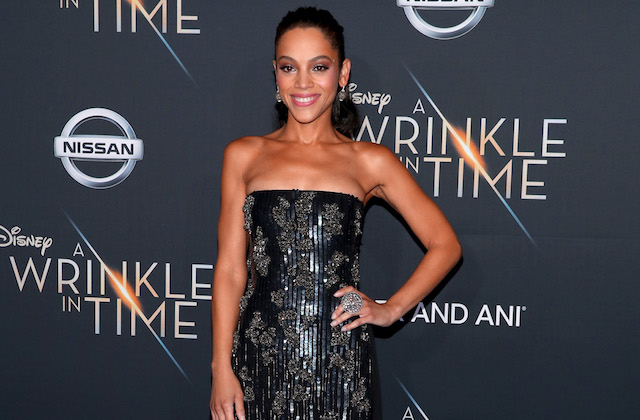Hollywood casting practices force many Black actors into portraying caricatures at some point in their careers. The Undefeated talked to eight thespians who played "token" Black characters on predominantly White ’90s television shows for an article published yesterday (February 26).
"For some of the most visible Black actors coming of age in the 1990s, it’s clear that along with the triumphs came isolation, blatant racial stereotyping and biased casting calls," journalist Keith Murphy writes in the introduction. The interviewees gave Murphy first-person accounts of the indignities they experienced while starring on shows with predominantly White casts like "Seinfeld" and "Dawson’s Creek." Some of the actors, like Bianca Lawson ("Queen Sugar"), eventually transcended the era and succeeded in projects by Black creators. Others, like Markus Redmond ("Doogie Howser, M.D."), had trouble freeing themselves from the pigeonhole.
Here are five excerpts from their stories:
Phil Morris ("Melrose Place," "9JKL")
I remember [around ’95] going out for a role on "Melrose Place"—one of the hottest shows on television at that time. I had a long history with Aaron Spelling ["Charlie’s Angels," "Dynasty" and "Beverly Hills 90210"]. I’ve gone to dinner with Mr. Spelling and I’ve gone to dinner with Mr. Darren Star [co-creator of "Beverly Hills 90210," "Melrose Place" and "Sex In The City"] and I’ve told them, "You need to have more Black people on that show than just Vanessa A. Williams." And they would tell me, "Oh, Phil…it’s all casting…we would bring you in, we would make a role for you in a heartbeat." I took it as lip service.
A few weeks later, "Melrose Place" had another role. I told my people to submit me for it. My agents came back and said, "Nah, they’re not going to see you. They want the role to be a White role." The next time I saw Aaron Spelling, I again told him that I knew I wasn’t going to get the role because I was Black. And he said, "Well, I’m only so big. There’s only so much that I can do." I finally got a role on "Melrose Place" because I happened to be the right dude.
Bianca Lawson ("Dawson’s Creek," "Queen Sugar")
I can’t remember how many episodes I was supposed to do on "Dawson’s Creek," but there was this thing where my character, Nikki, who was a filmmaker, always had to be better than [her White peers]. She even had a discussion with Dawson about this. It was really surreal. The thought of becoming the first Black actress on shows like "Dawson’s Creek" and "Buffy the Vampire Slayer" never really occurred to me back then.
Recently, I was on an airplane and someone left a beautiful note on my seat to say what I meant to them as Black actress on television. I didn’t really think about any of that when I was younger because you’re just doing the work. It was only years later, as I got older, that I realized seeing a young Black woman on "Buffy" and "Dawson’s Creek" was empowering to a lot of people."
Markus Redmond ("Doogie Howser, M.D.," "If I Had Known I Was a Genius")
Early on, I noticed the "Doogie" script was very surface. My character was written as this tough Black guy who’s about to rob a 7-Eleven. Doogie talks him down, he realizes the error of his ways, and Doogie gets to feel good about himself. On the third or fourth day of production, there was a line where Doogie’s mom screams at a cop, "If that animal hurts my son!" She was talking about my character. This became hugely controversial because we had a good number of African Americans that were extras on set.
The extra that played my mom, she especially took offense to it. I remember production stopped, and when we came back, that "animal" line had been taken out of the script. So there was this slow process of humanizing [my character] Raymond on the series.
Tangi Miller ("Felicity," "Nwannem: Sisters")
Acting seemed kind of far-fetched. It wasn’t practical. But there was a show called "Michael Hayes," which starred David Caruso. It was a detective series, like "Miami Vice," and I played a drug dealer’s girlfriend. I was more concerned about my hair than how my peers would perceive me as an actor.
Thank God I don’t have to worry about that now, because today they have a lot of Black hairstylists, but back then that wasn’t the case. So I showed up on set with my hair clean and washed and no makeup. And they would look at me like, "What happened to you?" This one White girl came to me with a pressing comb and she tried to comb my hair in the opposite direction, and I’m like, "No, no, no … the comb goes the other way."
Shaun Baker ("V.I.P.," "Chosen")
I was very mindful of how I was being portrayed as a Black man on "V.I.P." But there was a situation that I had to deal with. A lot of times in the stunt world, if they don’t think an African-American stunt person is capable, they will actually [Blackface] a non-African American. This would usually be a White person.
We were doing an episode where we were supposed to be circus performers, and they told me they couldn’t find any Black circus people, but I knew they just didn’t want to spend the money. So I told them to take me out of the scene if they were going to use a painted-on stunt person. I knew the history of Blackface. I understood how serious that was. I went to [star Pamela Anderson] and the producers and I said, "Not only am I offended, but the NAACP will be in here marching." They wrote me out of the scene.
